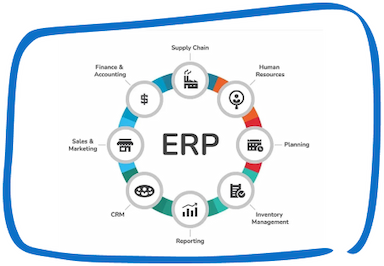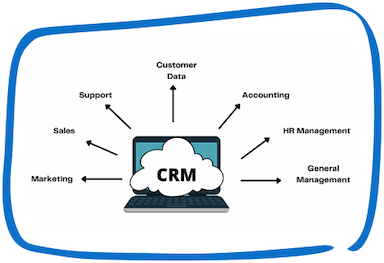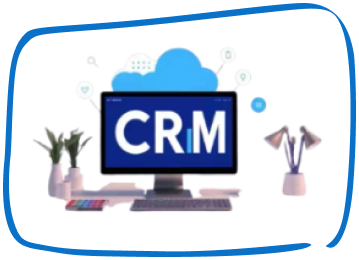An organization must ensure that every payment, tax payment, invoice, and data entry complies with relevant compliance laws. Due to the ever-changing nature of tax laws and compliance regulations, this necessitates complex procedures. Consequently, handling payroll becomes more challenging, involving increased data and effort. Fortunately, you can address these challenges effectively by utilizing payroll software or HRMS software, allowing you to focus on more productive tasks. lets check Payroll challenges and how to overcome on it.
Many HR professionals are enthusiastic about seeking talented recruits globally, but they often encounter obstacles, primarily related to payroll management. While calculating and disbursing salaries may seem straightforward, it is not the case. HR professionals encounter various difficulties during the payroll process. Identifying these payroll processing challenges is the first step toward finding suitable solutions to overcome them.
Addressing the Top 8 Payroll Challenges and Their Solutions
1. Legal Compliance and Statutory Challenges:
Running a business comes with its fair share of difficulties, and one of the most significant hurdles in payroll management is navigating the complex web of legal requirements. Labor regulations, state laws, and legal obligations are constantly evolving, making it challenging to stay in compliance. Even with dedicated efforts, errors can occur, resulting in substantial fines. Many businesses handle payroll manually or delegate it to their HR team, but the rules keep changing, creating a perpetual game of catch-up that disrupts the payroll process.
Solution
Overcoming payroll compliance challenges requires an investment in automated payroll software that receives regular updates. Staying well-informed about evolving regulations through continuous education is crucial. Additionally, for enhanced assurance and accuracy, consider outsourcing your payroll to seasoned experts.
2. Tax Troubles:
Managing taxes within payroll is akin to navigating a constantly shifting rulebook. Accurately calculating and withholding the correct amount of taxes from employees’ paychecks while ensuring the business pays its share of payroll taxes can be overwhelming. Errors in tax compliance can lead to penalties, fines, and legal complications, making tax management a substantial payroll challenge.
Solution:
To conquer tax-related challenges in payroll, invest in automated software, stay vigilant about changes in tax regulations, maintain meticulous records, and contemplate outsourcing to experts. Simplify tax compliance to ensure a smooth payroll process.
Select Product for Free Demo
3. Data Handling and Reporting:
Managing data poses a significant challenge in payroll processing, akin to juggling a multitude of critical pieces of information. Imagine the meticulous management of extensive employee data, ranging from pay rates to personal particulars. A single error can result in inaccuracies that may displease employees and potentially lead to legal complications. Additionally, there is a paramount responsibility to safeguard this data, as its mishandling can result in breaches that harm your company’s reputation.
Solution:
Opt for a secure payroll system or an HRMS Software equipped with user access controls to ensure that only authorized personnel can access sensitive data. Employ encryption for safeguarding confidential information when necessary. Discourage physical document storage and provide continuous training to staff responsible for handling payroll data to reinforce best practices in data security and privacy.
4. Need for Versatility:
The ever-changing landscape of work schedules, remote work arrangements, and evolving business requirements necessitate swift adaptability. Managing these changes manually can result in errors and delays that adversely affect both employees and the business. Staying agile and tech-savvy is the key to overcoming this challenge.
Solution:
Provide self-service options for your employees and ensure that your payroll process maintains compliance, regardless of your team’s location. Achieving flexibility requires a combination of technological solutions and a deep understanding of compliance standards.
5. Payroll Accuracy:
Errors are an inherent part of any process, and in payroll, they can lead to employee dissatisfaction and financial penalties. Payroll solutions are instrumental in reducing errors by automating data entry, saving time, and enhancing accuracy. Allowing employees to review and update their information further improves precision. Accurate data empowers you to make confident projections and conduct effective business analyses.
Solution:
Establish a well-structured time-tracking system for your employees and become well-versed in calculating overtime pay in accordance with local payroll regulations. Keep a vigilant eye on tax rates, which can be intricate. Additionally, consider utilizing payroll software that encompasses all aspects, from calculations to record-keeping, to ensure payroll accuracy.
6. Integration and Technology:
Incorporating technology into payroll procedures brings forth efficiency and valuable insights, although it can present complexities. Ensuring seamless communication among diverse payroll systems spanning various regions is akin to orchestrating a symphony with musicians who speak different languages. Keeping these systems current amidst the rapid pace of technological evolution presents an ongoing challenge, but the rewards in terms of efficiency and accuracy justify the effort.
Solution:
To address this challenge, initiate the adoption of unified payroll software capable of seamlessly interfacing with different systems. Opt for cloud-based solutions or HRMS Software, offering flexibility and scalability, allowing for easy adaptation to technological advancements and ensuring consistent updates and compliance across regions.
7. Data Security Concerns:
In our technology-driven era, concerns surrounding data security are on the rise, and the payroll industry is not immune to these challenges. The escalating threat of cybercrimes and breaches presents difficulties in safeguarding payroll data in 2023. Nevertheless, it is important to recognize that security measures are evolving to counter these risks, potentially yielding advantages.
Solution:
Mitigating data security concerns in payroll necessitates the implementation of encryption, stringent access controls, regular updates, employee training, and robust backup and recovery protocols. Outsourcing payroll to a reputable provider equipped with strong security measures is also a viable option. Collectively, these measures protect payroll data against potential threats and breaches, ensuring the security of payroll processing.
8. Cost Control:
Managing costs within payroll can be a significant challenge. It involves direct expenses, such as employee salaries and software fees, as well as indirect costs stemming from manual processes and error correction. Compliance errors can result in fines, while payroll inaccuracies can lead to employee turnover. Therefore, it is essential to keep these costs in check.
Solution:
Addressing payroll cost challenges requires a multifaceted approach, including automation, outsourcing, regular audits, employee training, and vigilant compliance monitoring. Therefore, implement efficient practices, explore scalable technology solutions, and maintain a well-structured budget. Additionally, offering employee self-service options can effectively help manage costs.
How to Overcome this Challenge in 2023:
Companies can effectively address payroll processing challenges from the employee perspective by implementing the following measures:
Employee Education. Companies can provide regular training and education to employees on payroll policies and procedures. This ensures that employees understand how to accurately record their attendance, submit required documents promptly, and update their personal information when necessary.
Automated Payroll Systems. Moreover, implementing automated payroll systems can help identify discrepancies in attendance records, personal details, or other related data. This technology reduces the risk of errors and delays in payroll processing.
Clear Communication Channels. Establishing clear communication channels, such as employee helpdesks, allows employees to seek clarification on payroll policies and procedures. These channels also facilitate the swift resolution of disputes and misunderstandings.
Regular Auditing. Conducting regular audits of payroll records helps identify errors or discrepancies in attendance records, personal details, or other relevant data. Timely identification and resolution of these issues contribute to accurate payroll processing.
The last thoughts
To sum up, payroll processing is a complex task that should not be handled manually, as it involves various challenges impacting accuracy and compliance. Non-compliance can result in penalties. To mitigate these challenges, consider using robust payroll management software capable of handling the evolving intricacies of payroll processing. Fortunately, solutions like Elate HR and Payroll software, a leading platform in the Middle East region, offer comprehensive employee experiences while addressing your payroll needs cost-effectively.
Speak with Our Team!
4.9 Stars
1k+ reviews on






